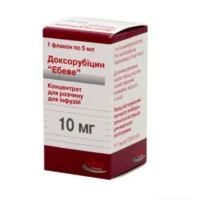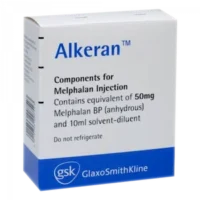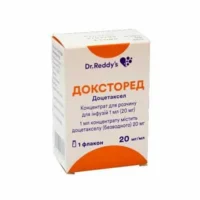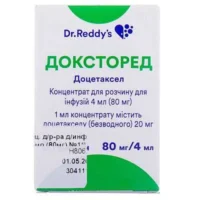Description
Metotrexat (Methotrexate) Tablets 10 mg. №50
Ingredients:
- Each tablet contains 10 mg of Methotrexate.
Dosage:
- The usual adult dosage for Methotrexate tablets is 7.5 to 20 mg once weekly.
- Dosage may vary based on the condition being treated.
Indications:
- Methotrexate tablets are indicated for the treatment of certain types of cancer, severe psoriasis, and rheumatoid arthritis.
- It works by slowing or stopping the growth of cancer cells and suppressing the immune system in autoimmune conditions.
Contraindications:
- Do not take Methotrexate if you are pregnant, breastfeeding, or have liver disease.
- It is important to discuss all your medical conditions and medications with your doctor before starting Methotrexate.
Directions:
- Take Methotrexate tablets exactly as prescribed by your healthcare provider.
- Swallow the tablet whole with a full glass of water. Do not crush or chew the tablet.
Scientific Evidence:
- Methotrexate has been extensively studied for its efficacy in treating various conditions.
- Research published in the Journal of Clinical Oncology has shown that Methotrexate is effective in the treatment of certain types of cancer, including leukemia and lymphoma.
- Studies in the Annals of the Rheumatic Diseases have demonstrated the effectiveness of Methotrexate in managing rheumatoid arthritis.
Additional Information:
- It is important to have regular blood tests while taking Methotrexate to monitor liver function and blood cell counts.
- Methotrexate may cause side effects such as nausea, vomiting, and hair loss.
- If you experience any severe side effects, contact your healthcare provider immediately.
Pharmacological Effects:
- Methotrexate works by inhibiting dihydrofolate reductase, an enzyme involved in the synthesis of DNA, RNA, and proteins.
- This action leads to the suppression of cell proliferation, making it effective in treating cancer and autoimmune diseases.
Clinical Trials:
- Clinical trials have shown Methotrexate to be a cornerstone therapy in the management of rheumatoid arthritis, with significant improvements in disease activity and joint damage progression.
- Studies have also highlighted its role in reducing the risk of relapse in certain types of cancer.





